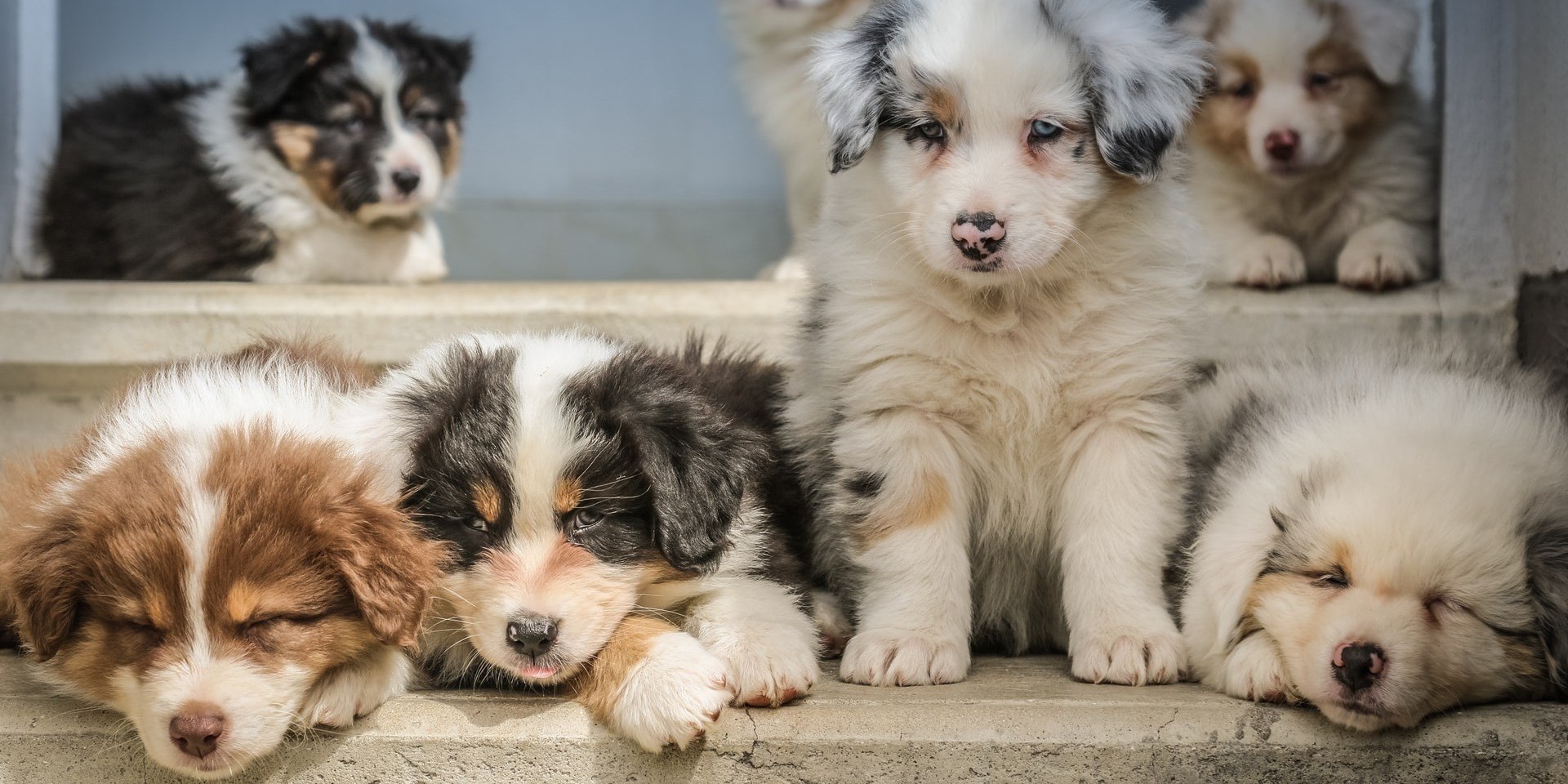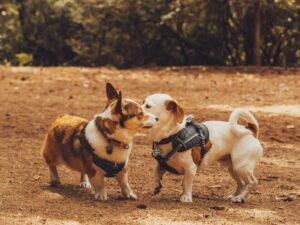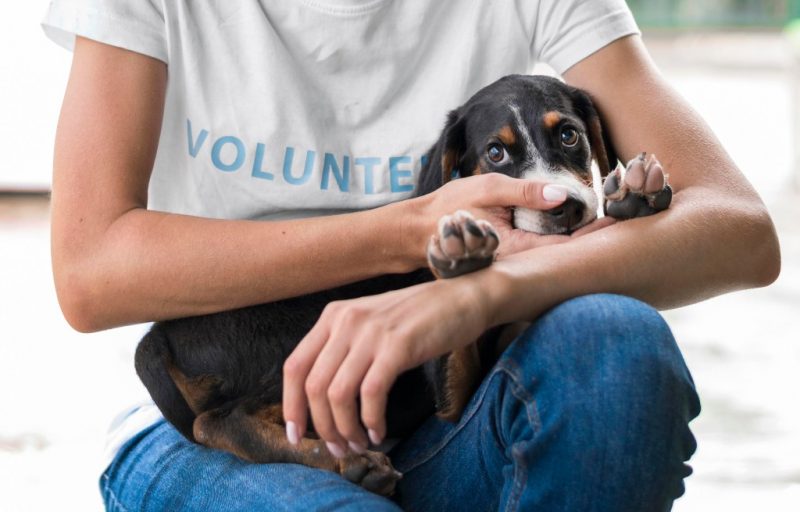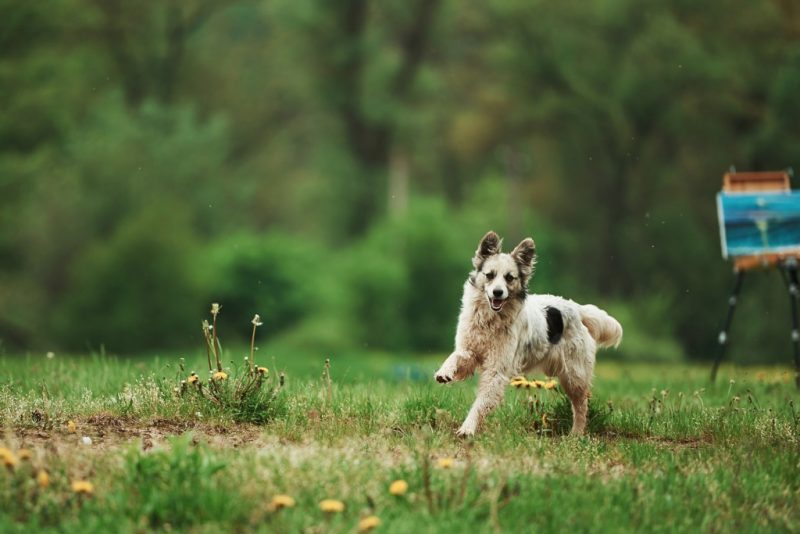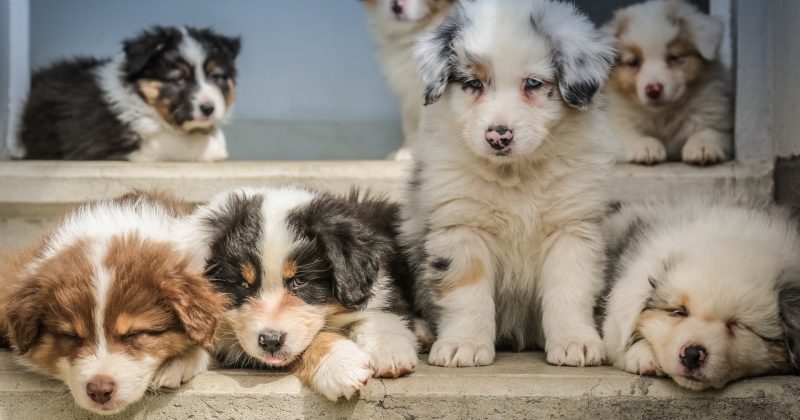Most of us are happy to be the centre of our dog’s universe. We’re their family, their favourite, the light of their life (hey, the feeling is mutual). As a result it can be easy to forget that they did have a life before us. We know dogs hold memories (although they experience them differently to us), but how much do they really think about the past? Do they pine for their families, reminisce about their siblings, or miss their littermates?
Do Dogs Remember Their Siblings?
As with so many things concerning dogs and their feelings, it can be hard to definitively know what they’re experiencing. While there is a lot of qualitative evidence that dog siblings remember each other, there isn’t a huge amount of data suggesting that they feel particularly homesick for their littermates
Dogs are pack animals; they’re family orientated by design. Right now, your dog sees you as part of their pack. But their connection to their first family will differ depending on how long they spent with them. If dog siblings spent their critical socialization period (3 to 17 weeks of age) together, it’s likely that they would at least be able to recognise each other if they met again. Dogs have long term memories, and experiences during that socialization period imprint on them. But it’s not really comparable to how we feel about our family.
Rather, it’s more likely that dogs are able to recognise (or “remember”) their family through smell. If they encountered each other again, they may feel more comfortable than with a strange dog, as their smell memory would tell them that this is someone they know. Although that recognition probably isn’t because they know they’re specifically related: they could have a similar response to any dog they knew during that socialisation period.
Also these studies don’t suggest the dogs are missing each other. Rather that they just show a familiarity when reunited. More, “Hey, I know you from somewhere,” than “Oh my gosh I’ve missed you so much.”
Should You Feel Bad about Separating Dogs from Their Siblings
No–if you do it right. It’s important that young puppies stay with their family for the first eight weeks. Not only do they need their mum’s milk (as with humans it has a lot of nutritional benefits), they also learn social and behavioural skills from their siblings. Removing them too soon can lead to issues later, such as difficulty putting on weight, increased disease susceptibility, and separation anxiety.
New puppies will always have an adjustment period when they’re first taken home where they may cry and whine. Assuming they weren’t separated too early, that’s fine and pretty normal. After all, everyone feels a bit distressed during a big life change. But with lots of love, attention, and care they’ll soon settle into their new home and start to think of you as their family.
Sticking Together Might Not Actually Be a Good Thing
It’s easy to project human emotions onto our pets, and feel bad about them being separated from their siblings. But far from causing them pain, some pet behaviorists argue that separating dog siblings is the better choice. Dogs that spend their whole lives together can become fixated on each other and develop behavioral issues. This is sometimes referred to as littermate syndrome.
When dog siblings are that closely bonded they may struggle to interact with other dogs or absorb the nuances of human/dog communication. Plus, it can make any separation (say if one needs to go to the vet) incredibly distressing.
Speaking to the Bark, Animal Behaviorist Patricia B. McConnell explained: “They are so busy playing with each other (or squabbling, more on that later), that you become the odd man out… It seems harder to get their attention, harder to teach them emotional control and harder to teach them boundaries.”
Can You Find Dog Siblings and Reunite Them (and Should You)?
Tracking down dog siblings is a tricky process. Unlike human adoption, there is no legislation or formal frameworks to assist it. Rather, it comes down to whether the breeder or rescue centre you adopted them from wants to facilitate an introduction between you and other pet parents.
As to whether it’s good for them, as mentioned, to the dog it’s just like meeting any animal from their past who they (probably) had a good experience with. It’s rewarding in the way that any positive social interactions are, but not hitting them like an episode of This Is Your Life.
People Trying to Reunite Them
If you’re interested in tracking down your dog’s siblings, but not in touch with your breeder, there is another option. Chews and Party, an Australian dog party planning business, are conducting their own Dog Sibling Hunt. Inspired by the growing popularity of human “Find My Family” journeys, they’re using their Instagram account and the hashtag #dogsiblinghunt as a notice board where people can share photos and adoption info of their dogs to see if anyone else’s pet is from the same litter.
To take part, just head over to their Instagram and check out the Sibling Hunt highlight. They admit it’s a long-term project, but as they explained to Off the Leash via email: “We think there are two definitions of success surrounding our Dog Sibling Hunt. The first would be success in connecting a pup to their siblings, which unfortunately has not happened yet. Secondly, we think success is also defined in the community engagement received from the campaign….The level of involvement from the community has been second to none and so we think we have hit a first level of success, soon to hopefully be followed by an actual sibling reunion!”
While we have pointed out that there probably isn’t an urgent emotional reason for your dog to have a family reunion, they argue that the project has benefits for the owners too: “We think just knowing your pet’s siblings would be helpful in bringing up your pet…Knowing your relatives helps you better get to know yourself. From your behaviours to appearance and health, having family nearby assists in the prediction model of your own self. If this is the case for humans, it is the case for pups too.”
Finally, Want to Celebrate Some Cute Dog Siblings?
Us too, here are some of our favourite videos.
For more articles about looking out for your dog, check out:
What You Need to Know about Bringing a Dog Home for the First Time
Is Pet Insurance Worth It? How to Prepare for Emergency Vet Bills
Do Dogs Actually like Dog Parks?
While you’re here, subscribe to our newsletter, check out our magazine, and follow us on Instagram, Facebook, and Twitter.

